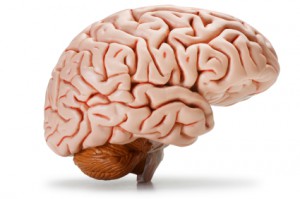Your Brain In Love
Ever hear yourself make any of these statements:
“She drives me crazy” “I flipped out” “I lost my mind” “He knows the buttons to push to get me going”
Do you want to know why your reactions to certain conflicts are way out of range with the actual situation?
Understanding the basics of brain functioning can help you make sense of what is happening in your relationship.
Here is a basic overview of the configuration of your brain:
Each of these areas has a profound impact on how you experience your relationships. All three parts are needed for emotional intelligence.
1. The Brain Stem – Your “Reptilian Brain”
- The purpose of the brain stem is to keep us alive. We share this part of our brain with all animals. The brain stem emits a chemical called cortisol, which is linked to the “fight or flight” response.
- The brain stem is attuned to signs of danger and has no sense of time. This means that fears or trauma from early childhood can be triggered and experienced with the same intensity when you are decades older.
- Childhood trauma really does become adult drama.
2. The Limbic System – Your “Mammalian Brain”
- This is the hotbed of emotions. Fear, anxiety, love, jealousy and excitement make their home in the limbic system.
- When your brain sends out a signal that there is “danger”, the limbic system shifts into high gear and all your emotion is channeled into the danger response.
3. The Neo-Cortex – Your “New Brain”
- This part of your brain controls executive function. Logic, thought and organizational ability are situated in your neo-cortex. Decision-making is rooted in this area.
You are Off To the Races!
If your partner is late from work and you tell yourself the story that he is leaving you or has been in an accident, then part or your neo-cortex disengages from the limbic system and brain stem.
What you are left with is your emotions (limbic system) and basic survival instincts (brain stem) to manage conflicts or disappointments in relationships. The New Brain is no longer at your service and you are fully engaged in reactivity.
We are most vulnerable in our intimate relationships. Even a small sign of trouble can appear to the older parts of our brain as a significant threat.
IMAGO Couples Dialogue
Once you can conceptualize what is happening in your brain when you are scared or vulnerable then you are in a better position to learn how to manage your reactivity.
Imago Therapists coach the The Couples Dialogue to create an integrated response between the 3 basic parts of your brain, to help manage anxiety and regulate emotion.
Couples are encouraged to go slowly, notice moments of reactivity and to work with their physiological responses and thought processes to decrease reactivity.
In other words, to stay in your right mind when the stress in your relationship is at a peak state.
Tags: Behaviour, Communication, Emotions
This entry was posted on Monday, February 28th, 2011 at 12:00 PM and is filed under IMAGO and Relationships, Thoughts and Therapy. You can follow any responses to this entry through the RSS 2.0 feed. You can leave a response, or trackback from your own site.




